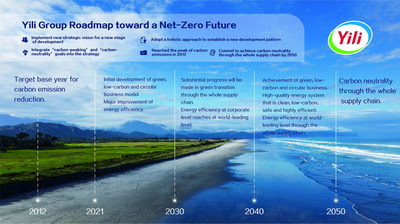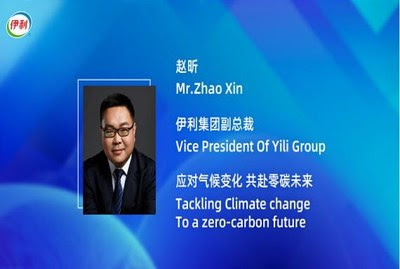بكين، 15 نونبر/تشرين الثاني 2022 / PRNewswire / — بعد ثلاث سنوات من تفشي جائحة كوفيد، شهد الاقتصاد العالمي، في الوقت الذي يواجه فيه شكوك وتحديات متزايدة، تغييرات عميقة، مع تسارع التطور الرقمي وظهور الاقتصاد الرقمي كمحرك جديد للانتعاش الاقتصادي والنمو.
يشير الاقتصاد الرقمي إلى مجموعة واسعة من الأنشطة الاقتصادية التي تشمل استخدام المعلومات والمعرفة الرقمية كعامل رئيسي للإنتاج، وشبكات المعلومات الحديثة كمساحة نشاط مهمة، والاستخدام الفعال لتكنولوجيا المعلومات والاتصالات ( ICT ) كمحرك مهم من نمو الإنتاجية والتحسين الهيكلي الاقتصادي، وفقًا لمبادرة التعاون والتنمية الاقتصادية الرقمية لمجموعة العشرين المتفق عليها في قمة مجموعة العشرين في هانغتشو 2016.
في عام 2021، بلغت القيمة المضافة للاقتصاد الرقمي في 47 دولة رئيسية حول العالم 38.1 تريليون دولار، بزيادة 15.6 في المائة عن العام السابق، وهو ما يمثل 45 في المائة من إجمالي الناتج المحلي المشترك، وفقًا لكتاب أبيض صادر عن الأكاديمية الصينية لتكنولوجيا المعلومات والاتصالات ( CAICT ) في يوليوز/تموز 2022.
ومن بينها، أعضاء مجموعة العشرين، الذين يمثلون أكثر من 85 في المائة من الناتج المحلي الإجمالي العالمي، و 75 في المائة من التجارة الدولية و 60 في المائة من سكان العالم، يقودون العالم في تنمية الاقتصاد الرقمي.
احتلت الولايات المتحدة، باقتصاد رقمي بقيمة 15.3 تريليون دولار، المرتبة الأولى في العالم. جاءت الصين في المرتبة الثانية باقتصادها الرقمي الذي بلغ 7.1 تريليون دولار. احتل الاتحاد الأوروبي المرتبة الثالثة بقيمة 6.3 تريليون دولار.
من حيث حصة الاقتصاد الرقمي في الناتج المحلي الإجمالي، احتلت ألمانيا وبريطانيا والولايات المتحدة مرتبة بين المراكز الثلاثة الأولى، حيث تجاوزت جميعها 65٪.
إجماع مجموعة العشرين حول الاقتصاد الرقمي
في قمة مجموعة العشرين لعام 2016 التي عقدت في هانغتشو بالصين، كرئيس دوري، تم إدراج الاقتصاد الرقمي كموضوع مهم في القمة لأول مرة. كما قادت الدولة صياغة وإصدار مبادرة مجموعة العشرين لتطوير الاقتصاد الرقمي والتعاون، والتي كانت أول وثيقة لسياسة الاقتصاد الرقمي أقرها قادة مجموعة العشرين.
اقترحت الوثيقة سبعة مبادئ إرشادية لتطوير الاقتصاد الرقمي، وهي الابتكار والشراكة والتآزر والمرونة والشمول وبيئة الأعمال المفتوحة والتمكينية وتدفق المعلومات من أجل النمو الاقتصادي والثقة والأمن.
كما حددت ستة مجالات رئيسية للتعاون في الاقتصاد الرقمي، بما في ذلك توسيع الوصول إلى النطاق العريض وتحسين الجودة؛ تشجيع الاستثمار في قطاع تكنولوجيا المعلومات والاتصالات؛ دعم ريادة الأعمال وتعزيز التحول الرقمي؛ تشجيع التعاون في التجارة الإلكترونية؛ تعزيز الإدماج الرقمي وتعزيز تنمية المؤسسات الصغيرة والمتوسطة الحجم.
الاقتصاد الرقمي المزدهر في الصين
وصل الاقتصاد الرقمي الصيني إلى 7.1 تريليون دولار في عام 2021، وهو ما يمثل 39.8 في المائة من الناتج المحلي الإجمالي للبلاد، وفقًا لكتاب أبيض صادر عن الأكاديمية الصينية لتكنولوجيا المعلومات والاتصالات ( CAICT ).
وأظهر الكتاب الأبيض أنه في الفترة من 2012 إلى 2021، كان متوسط معدل نمو الاقتصاد الرقمي الصيني 15.9٪، وزادت حصة الاقتصاد الرقمي في الناتج المحلي الإجمالي من 21.6٪ إلى 39.8٪.
قال الكتاب الأبيض إن دور الاقتصاد الرقمي كعامل استقرار ومسرع للاقتصاد الصيني الإجمالي أصبح أكثر بروزًا.
اعتبارًا من يونيو/حزيران 2022، كان لدى الصين 1.05 مليار مستخدم للإنترنت، مما يشكل أكبر مجتمع رقمي في العالم وأكثرها ديناميكية.
قامت الدولة أيضًا ببناء أكبر شبكات الجيل الخامس 5G في العالم، مع 1.97 مليون محطة 5G بنهاية يوليوز/تموز.
بينما يزدهر الاقتصاد الرقمي الصيني ويصبح محركًا متزايد الأهمية للتنمية الاقتصادية، تقدم الدولة أيضًا المزيد من الفرص للشركات الدولية للنمو في السوق الصينية وتشهد تعاونًا نشطًا مع أعضاء مجموعة العشرين في هذا المجال.
في يونيو/حزيران، أنشأت شركة Siemens الألمانية أول مركز تمكين رقمي للبنية التحتية الذكية في الصين، لاستكشاف التعاون مع الشركات المحلية في البنية التحتية الذكية.
تتعاون شركة IBM العملاقة للتكنولوجيا الأمريكية، بخدماتها المستندة إلى السحابة، بنشاط مع الشركات الصينية في تحولها الرقمي.
تعمل الصين أيضًا مع البرازيل في حماية النظام البيئي لغابات الأمازون المطيرة باستخدام التقنيات الرقمية.


